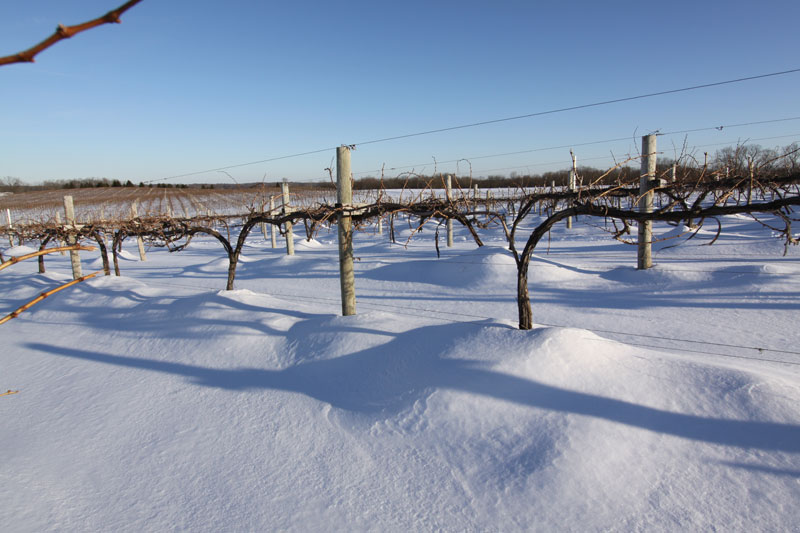Kansas Reopens Battle over Alcohol in Grocery Stores
The Kansas Chamber of Commerce says a bill allowing alcohol to be sold in grocery stores will be proposed in the state’s legislature by the end of this month. It’s the latest salvo in an ongoing struggle over the state’s alcohol laws that pits the Chamber with big grocery stores on one side, versus the Kansas Association of Beverage Retailers (KABR) and liquor stores on the other.
According to data extrapolated from a study by the Food Marketing Institute (FMI) – a trade association representing thousands of US retail stores – Kansas, Kentucky and Minnesota are the only states in the Midwest where local laws still stop grocery stores from selling beer, wine and spirits.
Similar proposals to allow the sale of alcohol in grocery stores in Kansas have failed for the past two years, but the Chamber’s Vice President, Kent Eckles is more confident of success this year. ‘We’ve got a lot of new faces in the legislature this year. I think we have about 50 in the house and a dozen or so in the senate,” he says. ‘Certainly that could change the game.”
And last year Kansas relaxed some of its more draconian alcohol regulations, allowing wineries to sell their wines by the glass and at events by the bottle.
See related story: New Kansas Law Provides Bottle Sales at Event
Eckles says, if passed, the current proposal would bring jobs and revenues into the state. ‘It’s a definite economic development issue.” The pro-free market Chamber says the current rules unfairly protect a monopoly of liquor store owners. He also says many retailers have told them they will not open more stores in Kansas until the liquor laws change.
‘It’s a definite economic development issue.”
Kent Eckles, vice president, Kansas Chamber of Commerce
A study last year by the FMI, “The Economic Impact of Allowing Shoppers to Purchase Wine in Food Stores”, concluded that ‘Enabling wine to be sold in 8,489 food stores in states that currently restrict such sales is estimated to produce a total economic impact of $14.3 billion, including a net increase of more than 168,000 jobs across the U.S. and incremental tax collections of more than $3.3 billion at the state and local level and of more than $1.9 billion at the federal level.”
Some studies point to liquor store retailers being the losers, but say consumers could get much of their alcohol at more competitive prices.
In 2006 in Minnesota, the Legislative Audit Commission looked at the possible effect of allowing liquor in grocery stores using data from neighboring Wisconsin, where it was already legal. It reported that less restrictive laws could save the Minnesota alcohol consumer’s about $100 million annually but also said, ‘competition from grocery, convenience, and supercenter stores could cause significant numbers of private liquor stores to go out of business.”
Interestingly, if grocery stores were only allowed to sell wine, the Audit Commission concluded: ‘Profits of existing stores would be affected, but most stores would probably stay in business.”
Despite the legality of these measures in most US and Midwestern states, the retail liquor associations remain strongly opposed to the sale of any liquor in grocery stores. The Kansas Association of Beverage Retailers’ (KABR) Executive Director, Amy Campbell, quoting reports from Summit Economics and the Distilled Spirits Council of the USA, has suggested that about 50% of Kansas liquor stores would disappear if the law was brought in.
The KABR also argues that alcohol is better regulated if it’s sold by its members rather than grocery stores. It says that allowing sales in grocery stores provides easier access to minors by placing liquor sales in the hands of teenage employees.
In Kentucky – the third Midwestern state where alcohol sales in grocery stores is still illegal – a federal judge ruled in August that these laws are unconstitutional. However, the ruling has been placed on hold while the state appeals against it.
Distilling the Truth, a lobby group representing wine and spirits retailers in Kentucky, says the push to change this state law is, ‘led by out-of-state mega corporations that have funded similar campaigns in Tennessee, Colorado, New York and Massachusetts.”
But the liquor retail associations do have quite a bit of mega-clout themselves. Jeff Siegel, who’s written about this issue on his blog, The Wine Curmudgeon, says, “Wine in grocery stores seems like such a good idea, but so much money is involved in keeping wine out of supermarkets that getting it done is never simple.”
However, allowing big corporate grocery stores to increase their profits by selling alcohol at the expense of small businesses, even if they do add a few jobs, is not the most desirable path of economic development. But perhaps grocery stores and liquor stores can both sell alcohol and co-exist? A small survey by Midwest Wine Press in the town of Liberty, Missouri found at least three small liquor stores and three large supermarkets catering to the drinking habits of the local population.




1 Response
[…] Kansas Re-Opens Battle Over Alcohol In Grocery Stores […]